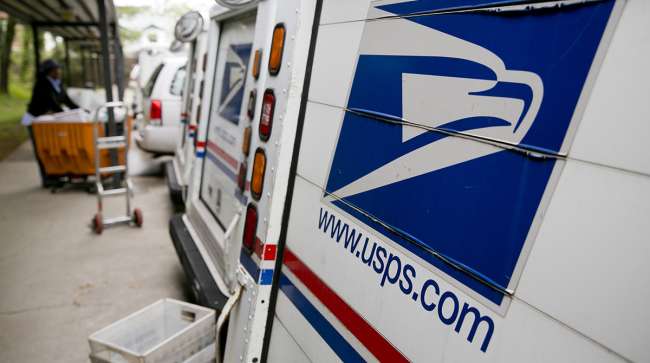Missouri Sen. Claire McCaskill Pushes Back on Privatizing Postal Service

Restructuring the federal government to make it more efficient and accountable is an idea Missouri Sen. Claire McCaskill says she can get behind.
But privatizing the U.S. Postal Service as part of that reorganization, that notion proves a non-starter.
McCaskill says rural residents of her state, and all states, will pay the price for such a move, and the U.S. government ultimately will pick up the cost anyway.
RELATED: As Trump pushes to privatize the troubled US Postal Service, others push back
“If you don’t have the delivery … that is absolutely a big step backwards for economic vibrancy in our rural communities,” the senator said. “There is no way a privatization model delivers the same level of service to rural America as they currently receive.”
She added, “I know what privatization means for rural Missouri, and I will not go there on postal.”
McCaskill made the remarks July 18 during a hearing of the Senate Homeland Security & Governmental Affairs Committee, on which she serves as the top Democrat.
Reform proposals came from the Office of Management and Budget, which has been assigned by the Trump administration with putting together government reorganization ideas.
The Missourian has long been an advocate for saving the Postal Service’s six-day delivery schedule and maintaining post offices in rural stretches of the nation. In 2012, when up to 3,700 post offices were being considered for closure, McCaskill argued that rural post offices amounted to less than 1% of the service’s operating budget.
RELATED: How Amazon is helping the US Postal Service, despite what Trump thinks
Private business, she said at the Senate hearing, can not feasibly match the “last mile” necessity of current postal operations. The same case could be made earlier for rural electrification and currently for access to rural broadband, the senator added.
“There is no business model that will provide the level of profit that that last mile of real estate requires,” she said. “The hope for rural America right now is not only a trade policy that makes sense, it’s also the ability of rural Americans to participate in small business by online participation.”
An OMB report titled “Delivering Government Solutions in the 21st Century” spelled out the recommendation on postal delivery.
“A privatized Postal Service would have a substantially lower cost structure, be able to adapt to changing customer needs and make business decisions free from political interference and have access to private capital markets to fund operational improvements without burdening taxpayers,” the report said.
Margaret Weichert, an OMB deputy director in charge of the reorganization project, testified at the hearing.
“The recommendations include top-down and bottom-up proposals for change, and they represent a starting point for public dialogue on much-needed government transformation,” she said.
RELATED: Postal Service’s pricing methodology upheld by appeals court
But McCaskill noted that the proposal lacked specifics and that Weichert’s group had failed to share information with the congressional committee.
“If we are emulating business, there is no way this document would be brought into a board room of any private company,” she said of the report. “It is woefully short on details.”
Sen. Ron Johnson (R-Wis.), the committee chairman, contended that the project remains in its early stages and that details would follow on the recommendations.
He called the work necessary, saying Washington spends $4.2 trillion a year on what the Federal Register cites as 441 departments, agencies and subagencies.
The entire federal government, Johnson pointed out, has become so unwieldy that even the government can’t account for all of its operations.
“Here’s the money line: ‘There is no authoritative list of federal agencies in existence,’ ” he said, referring to a briefing paper. “So we’re kind of taking a guess at 441.”
Distributed by Tribune Content Agency, LLC




